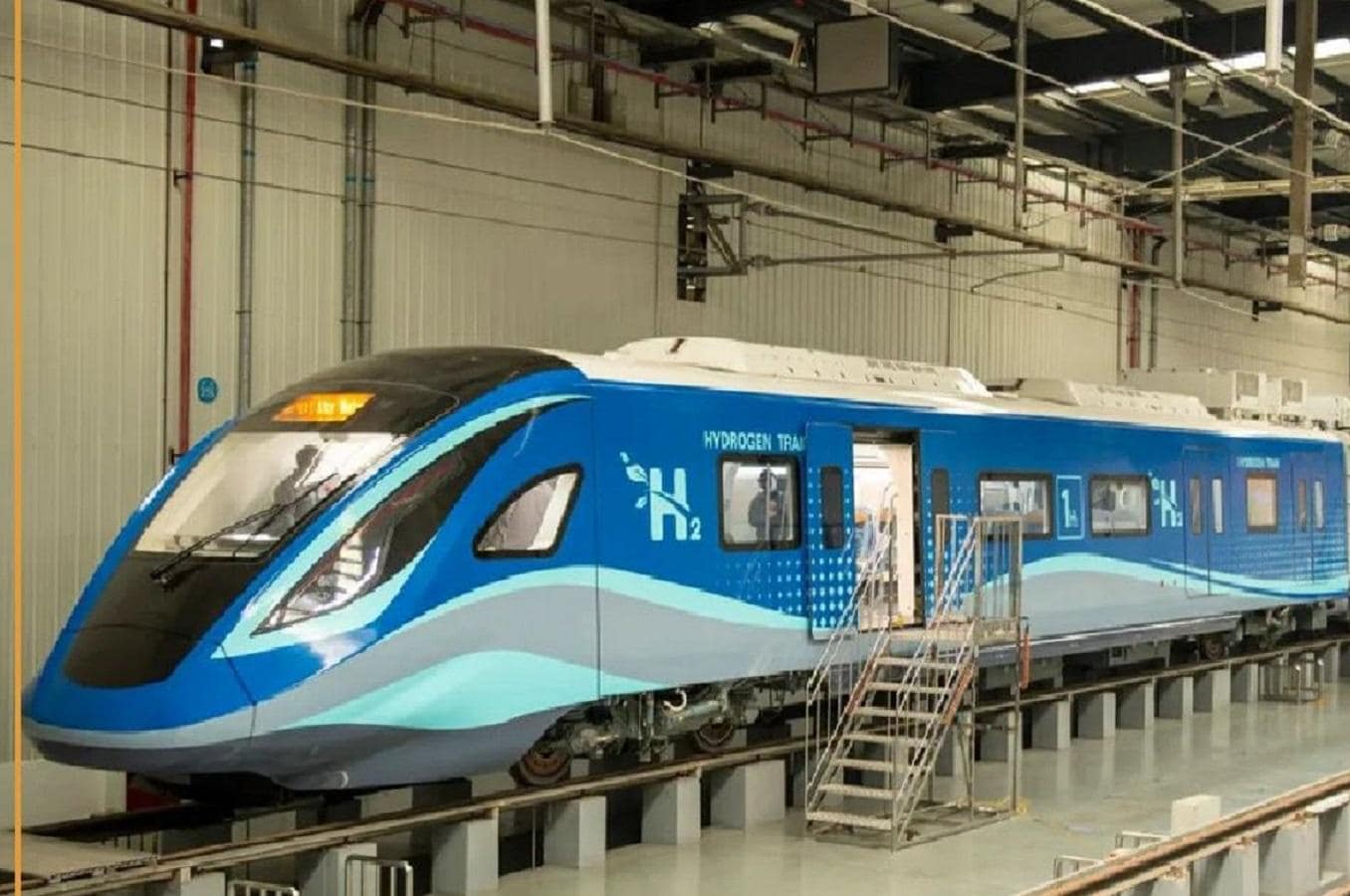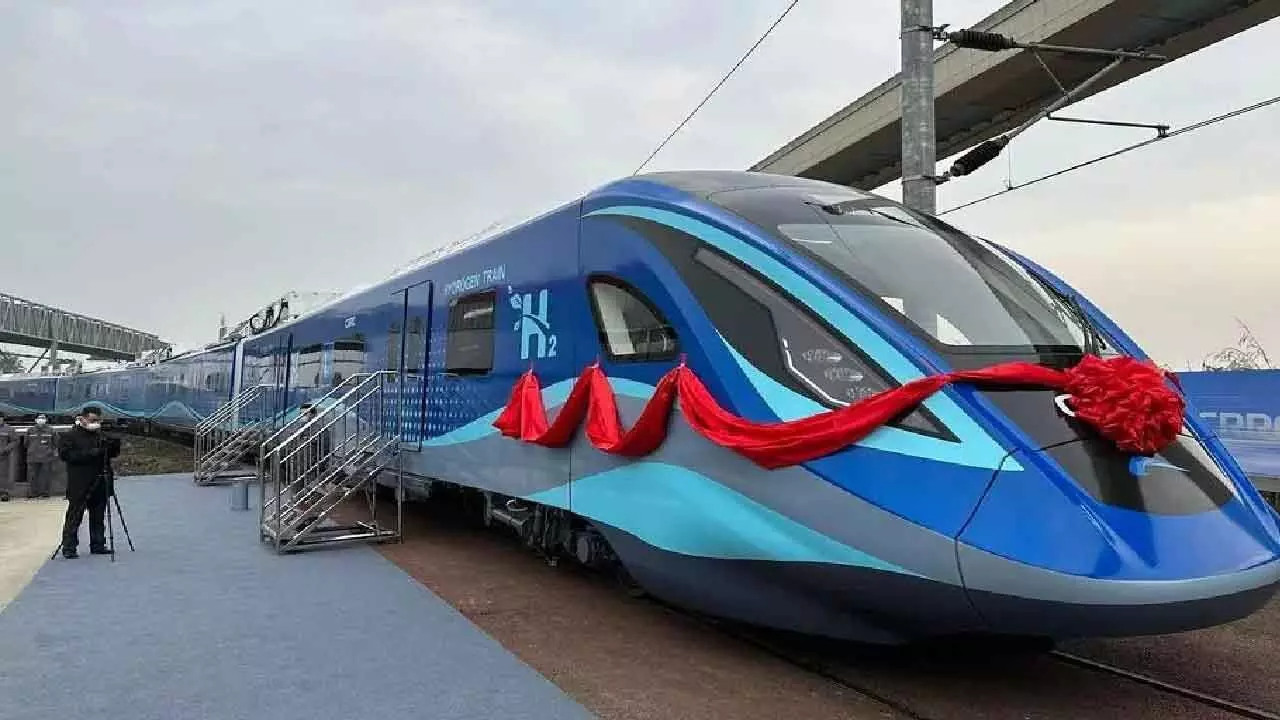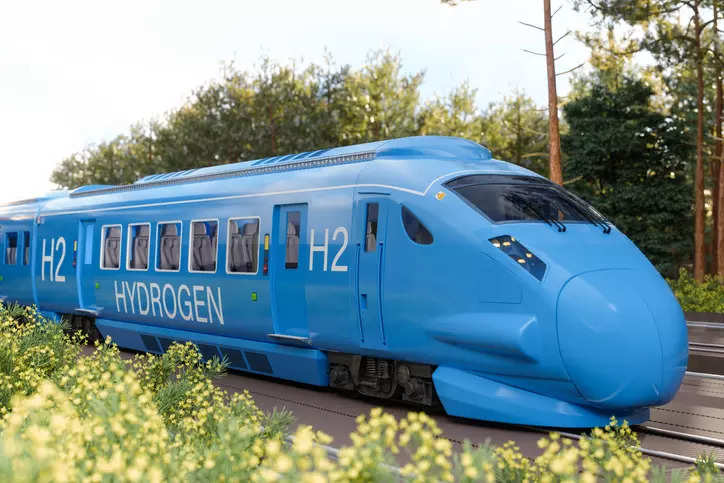A big update revealed regarding the Hydrogen Train. India’s groundbreaking hydrogen fuel cell train, originally set to debut in December 2024, is now slated to commence operations on March 31.
However, it is likely to be delayed until June due to unexpected technical issues encountered during testing. The postponement follows the identification of necessary updates to enhance the train’s hydrogen fuel cell system, ensuring it can effectively manage its high-load capacity. Here are the details.

This cutting-edge hydrogen train, designed to operate on the historic Kalka-Shimla route, boasts a powerful 1,200 HP hydrogen engine, making it the most potent hydrogen-powered train globally. The technology harnesses hydrogen and oxygen to generate electricity through fuel cells, producing only steam as a byproduct, thus posing no environmental threat. The creation of this engine showcases India’s capability to develop eco-friendly vehicles entirely within the country.

Despite its remarkable features, the hydrogen train encounters operational hurdles, particularly in extreme weather conditions across the mountainous terrain between Shimla and Kalka. To facilitate smooth travel along the 96 km route, adjustments are being implemented to ensure the train operates efficiently in temperatures below 5 degrees Celsius or above 35 degrees Celsius while carrying less than 80 percent of its load.

Officials have pointed out that to keep up its performance on tough terrains, the train might need to run at lower speeds when it’s carrying over 2,200 passengers. To tackle this challenge, the new prototype design features a large fuel cell that enhances its operational flexibility



